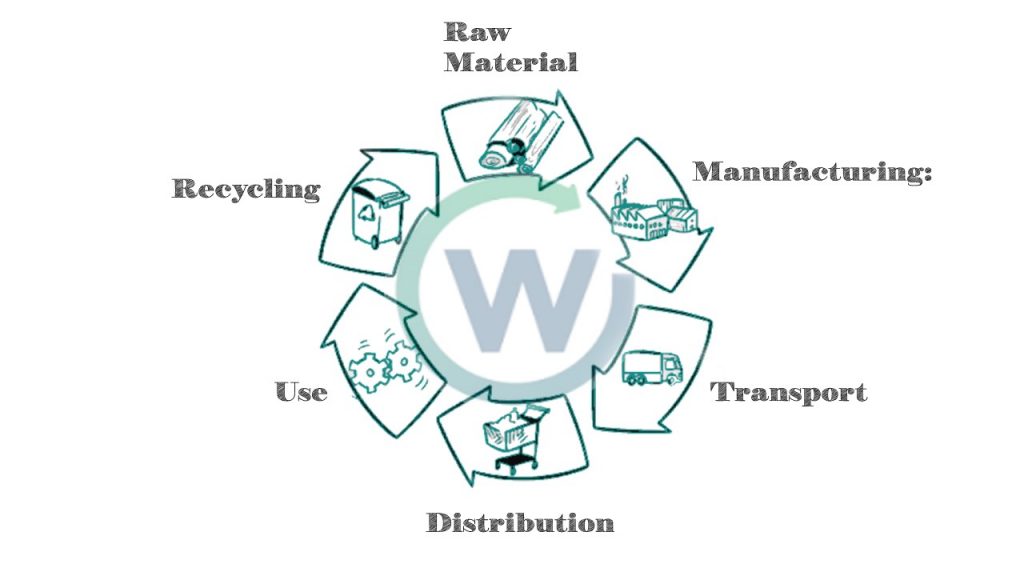The principle of the ecodesign of a product falls within a more global environmental approach.
Like industrial ecology and the economics of functionality, it’s a part of the loop of circular economy that is situated upstream during design.
Ecodesign aims, with equal quality and performance, to reduce the product’s negative impacts on the environment throughout its life cycle.
It takes into account all life stages of the product.

Manufacturing:
The product must be designed in a way to limit its impact on the environment at the moment of its conception but also during its use.
Thinking about the use of this in order to adapt its manufacturing to the users.
Thinking about suitable materials and allowing it to be easily repaired and dismantled.
That each product component can be isolated to facilitate recycling at the end of its lifecycle.
Ecodesign is a factor of competitiveness and innovation for companies.
Distribution:
Just like for manufacturing, you have to limit energy expenditure linked to distributing the product as much as possible.
Producing locally remains the most simple and the best solution to limit the carbon footprint linked to transport and in addition allows employment to be determined at a local level.
Use:
The design must be thought out in a way to limit the product’s environmental impact during its use:
- By favouring green energy sources for energy-consuming products.
- By constantly improving the product’s lifespan to allow a prolonged use.
- By facilitating the dismantling and repair by the user and by offering affordable spare parts
Final valorisation:
The product must be thought out to optimise the recycling of each of its different components.
Each material must be able to be isolated from the others in order to be able to reuse it or recycle it more easily.
Each ecodesigned product must be 100% recyclable.
At the moment, certain labels and certifications exist for products from this green production dynamic.
However, this way of designing a product goes totally against current trends, where programmed obsolescence, fashion phenomena and burst advertising encourage the population to over consume.
Philosophically, you have to challenge the postulate consumption = growth = progress
Principles like ecodesign and functional economy must work in pairs to be effective and economically viable.
The major decision-makers of this world or on a smaller scale the members of each government must be aware of the crucial role they have to play in this change.
It’s from them that the decisions will come that will lead to the move towards this new economy.
Nowadays, all initiatives on an associative, industrial or private level, even if they are rentable and indispensable, will only have a small impact if the laws do not govern the process.




